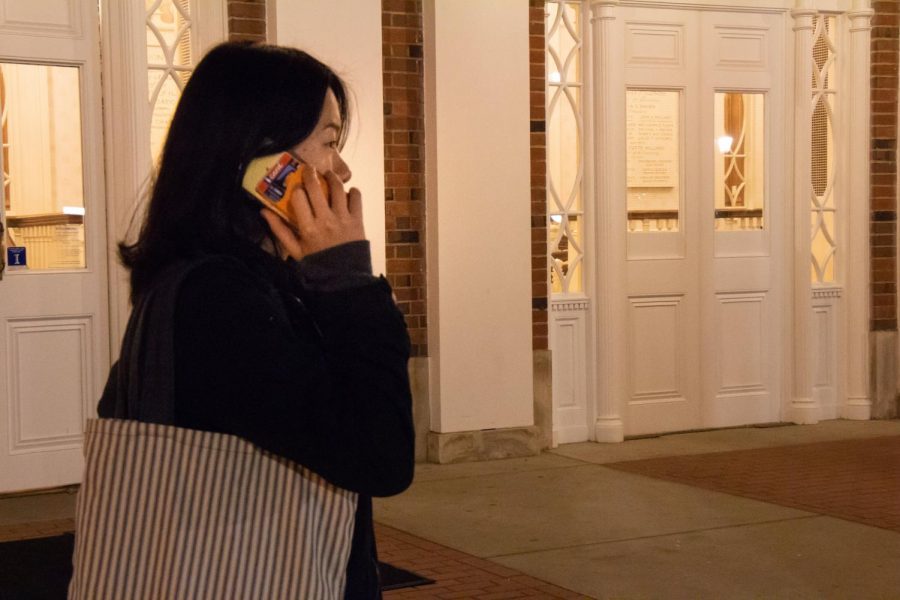Phone scams target international students
Nov 5, 2018
International Student and Scholar Services sent out an email recently informing its recipients that a large number of international students have been targeted by phone scammers in the past two weeks.
Craig Stone, executive director of public safety and chief of police at the University, said a University student received a phone call from someone claiming to be from the Chinese Consulate, who told her she would be arrested if she didn’t wire the caller $30,000.
The student followed through with the wire transfer only to realize she had fallen victim to a phone scam. The student’s identity has not been made public as investigations are ongoing.
The email from ISSS said the callers pretend to be from government agencies and attempt to scare their victims, lying that their immigration status or ability to remain in the U.S. would be in jeopardy unless they pay a large sum of money.
Stephanie Dvorachek, associate director of ISSS, declined to further comment in an email because the relevant information is private and anecdotal in nature.
Get The Daily Illini in your inbox!
Two phone scam incidents targeting international students had been reported to the University’s Police Department, but Stone said the cities of Champaign and Urbana could have received reports as well.
Stone said the email was necessary to make sure students know how to take precautions to protect themselves from phone scams.
“We find people are targeting students,” he said. “They’re vulnerable and may not be aware that people are using false pretenses to try to get their personal information.”
International students are more likely to fall victim to phone scams because they could receive calls from scammers pretending to be a representative of their consulate and threatening deportation if money is not wired, Stone said.
“The consulate is here to help students and be an advocate for the students,” he said.
Oscar Chen, senior in Computer Science and Chinese international student, has had two incidents with phone scammers, but did not report them because he recognized that they were scams.
Chen said his passport was expiring when he received his first call, which almost caused him to fall victim to the scam.
“I soon realized that they were not who they claimed to be because they claimed they were the Houston general consulate. But from where I am, if there was to be a call from the consulate, it should be from Chicago, not from Houston,” Chen said.
Chen said he hung up the phone call after the alleged Houston general consulate asked him to provide information that they should already know, such as his name and his location.
In the second incident, the caller claimed to be from a shipping company and said Chinese customs had intercepted a suspicious package from Chen, full of fake passports and fake credit cards.
They said that if he did not cooperate with them, he would be facing deportation, Chen said.
Scammers may try to get student’s date of birth, social security number and bank account information, Stone said.
“They say that ‘oh you’re going to get arrested’, or you owe taxes, or just making up fake claims to try to get you to have empathy or sympathy with these people and thinking that you are really in trouble, or they’re in trouble and you need to help them,” Stone said. “But it’s totally false.”
Another way scammers attempt to get money is by encouraging their victims to go to CVS or Walgreens to buy gift cards for them, Stone said.
Students and scholars should hang up the phone immediately and not engage in the conversation if they receive this type of phone call, he said.
UINs, social security numbers, bank account and other personal information should be protected by students, Stone said.
“Protect that information, and don’t let that information out,” he said.






